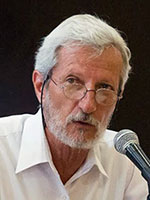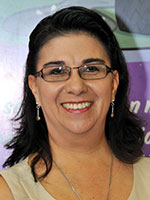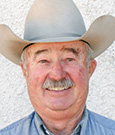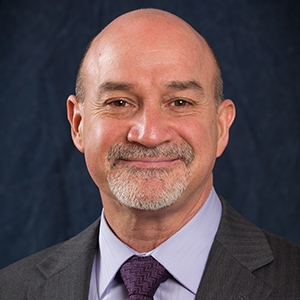Session ordinaire n° 12-03 et atelier du CCPM – Limiter la vulnérabilité des écosystèmes et répondre aux besoins des collectivités : Outils et information propices aux mesures nord-américaines
Merida, Yucatan, Mexique
Fiesta Americana Mérida
Paseo de Montejo 451,
colonia Centro, 97000
Mexique
13 et 14 décembre 2012
Publique
Les écosystèmes nord-américains sont soumis à un stress énorme — imputable aux changements climatiques, aux polluants émis dans l’air et rejetés dans l’eau, et à la surconsommation de ressources naturelles. Ce stress a déjà rendu bon nombre de nos écosystèmes vulnérables à des changements irréversibles, qui ont des effets directs sur les collectivités humaines dépendant de ces écosystèmes. Dans le cadre de cet atelier, on examinera de près ce qui rend les écosystèmes et les collectivités vulnérables à un environnement en mutation, et les emplacements, en Amérique du Nord, où les menaces auxquelles ils sont exposés sont les plus graves. Les participants pourront expérimenter divers nouveaux outils d’évaluation de la vulnérabilité, de cartographie des facteurs de stress et de perturbation de l’environnement, et d’amélioration de la santé des membres des collectivités humaines vulnérables. En collaboration avec des spécialistes nord-américains et des membres du Comité consultatif public mixte de la CCE, ils détermineront, en outre, les mesures que peuvent prendre les particuliers, les collectivités et les gouvernements afin d’améliorer ces nouveaux outils et leur diffusion, en particulier pour les communautés rurales et autochtones les plus touchées par les bouleversements de l’environnement.
- Compte-rendu de discussion – Session ordinaire 12-03 — Réduire la vulnérabilité des écosystèmes et répondre aux besoins des collectivités : Outils et information propices aux mesures nord américaines
- Avis au Conseil 13-01 — Conclusions des ateliers que le CCPM a tenus à La Nouvelle-Orléans, en juillet 2012, sur le renforcement de la résilience des collectivités, et à Mérida, en décembre 2012, sur la réduction de la vulnérabilité des écosystèmes en Amérique du Nord
Ordre du jour
Le jeudi 13 décembre 2012
Salón Yucatán 1
Inscription des participants
Ouverture et observations préliminaires

Eduardo Batllori Sampedro
Secrétaire au Développement urbain et à l’Environnement de l’État du Yucatán

Irasema Coronado
Directrice exécutive, Commission de coopération environnementale (CCE)

Martín Gutiérrez Lacayo
Président du Comité consultatif public mixte (CCPM) pour 2012
Presentation of objectives, methodology and participants

Francisco Padrón Gil
Directeur, IMAC
Discours-programme

Elizabeth Smith
Directrice nationale adjointe, programme de recherche sur les collectivités durables et en santé (Sustainable and Healthy Communities Research Program), US EPA (Agence de protection de l’environnement des États-Unis).
Télécharger la présentation
Période de questions et réponses
Exposés : Impact de la vulnérabilité accrue des écosystèmes sur la subsistance et la santé des collectivités nord-américaines

Evelia Rivera Arriaga
Secrétaire à l’Environnement et au Développement durable de l’État de Campeche.

Chief Carl Sidney
Chef de la direction du Conseil des Tlingits de Teslin (Yukon)

Albert W. Miller
Commissaire du comté de Jeff Davis
Pause
Échange de vues entre les intervenants et le public au sujet de la vulnérabilité accrue des écosystèmes sur la subsistance et la santé des collectivités en Amérique du Nord
Salons Yucatán 3 et 4
Dîner [offert]
Exposé : Cadre de renforcement des capacités visant à améliorer la santé des collectivités vulnérables en Amérique du Nord

Orlando Cabrera
Gestionnaire des projets, RRTP et qualité de l’air à la CCE
Télécharger la présentation
Période de questions et réponses
Travail en groupe afin de générer des commentaires à propos du document relatif au cadre
- Quelles sont les possibilités de diffusion du document relatif au cadre dans l’ensemble de l’Amérique du Nord, et quels sont les moyens de diffusion les plus efficaces?
- Quelles sont les applications potentielles du cadre (outils, guides, etc.)?
- Quels outils permettraient de limiter la vulnérabilité des êtres humains à la pollution par les produits chimiques?
- Quels problèmes les concepteurs de ces outils risquent-ils de connaître durant la phase de conception?
Pause
Exercice en groupe : Outils permettant de cartographier et d’identifier les systèmes vulnérables (humains et naturels) et d’évaluer les changements à venir
Travail en groupe :
- Zones géographiques subissant d’importants changements
- Facteurs générant les changements
- Facteurs qu’on peut déjà mesurer et facteurs pour lesquels on a besoin de données
- Différents moyens d’intégrer les facteurs de stress et les conditions
- Moyens de visualiser les possibles conditions à venir

Karen Richardson
Gestionnaire de programme, Écosystèmes terrestres et marins
Télécharger la présentation
Récapitulation, par M. Francisco Padrón Gil
Récapitulation, par M. Francisco Padrón Gil
Travail en groupe : La session visera avant tout à proposer des mesures, et à renforcer la capacité des Nord-Américains à identifier les écosystèmes et les collectivités humaines vulnérables, ce qui inclut une évaluation de l’accès aux données récentes et la nécessité d’améliorer cet accès. Les propositions incluront des mesures prises par les particuliers et par les administrations locales/les gouvernements fédéraux.
Pause
Présentation des mesures proposées, par les rapporteurs et l’animateur
Conclusions, par l’animateur et le président du CCPM
Compte rendu des représentants des comités consultatifs nationaux et gouvernementaux
Suivi des activités du CCPM et questions administratives
- Élection du président du CCPM pour 2013
- Priorités du CCPM pour 2013 et prochaines réunions
Clôture de la session
Salons Yucatán 3 et 4
Dîner [offert]